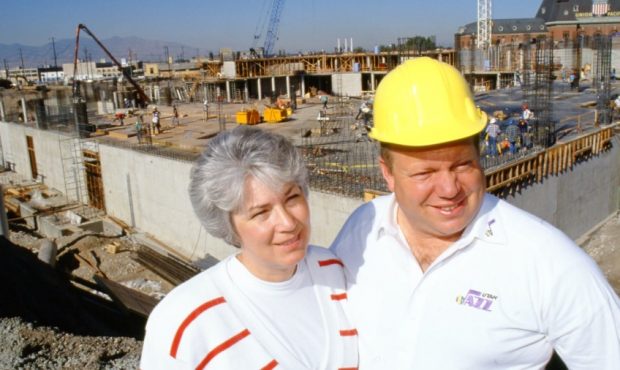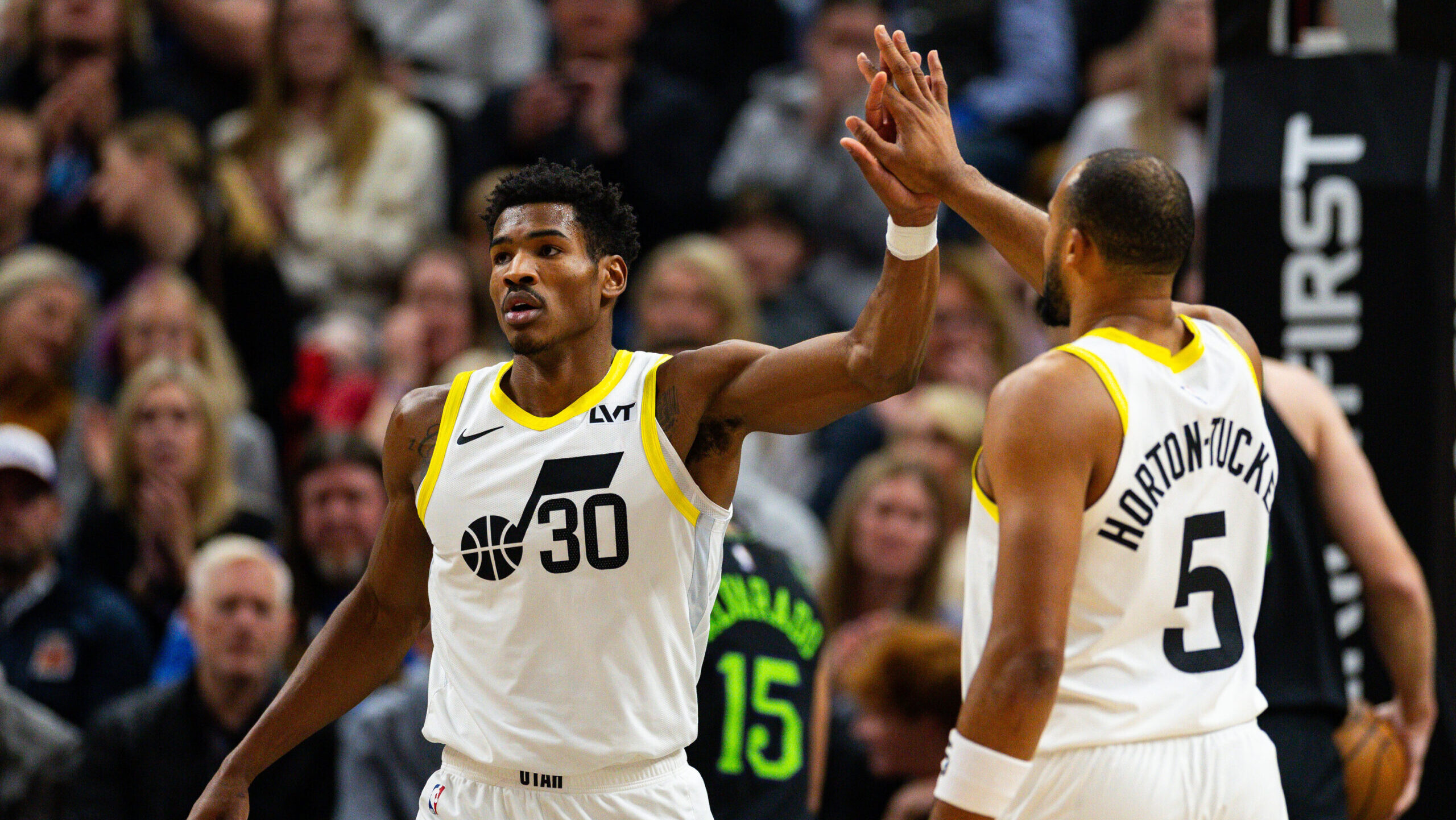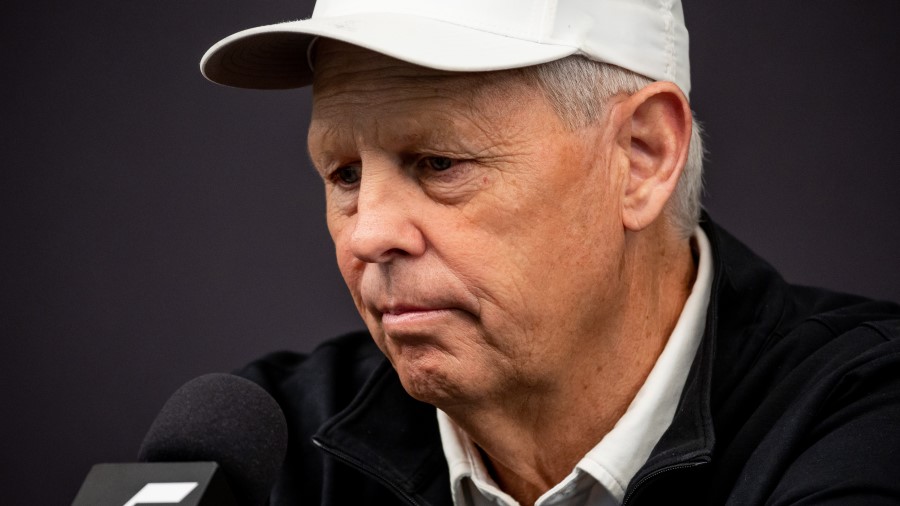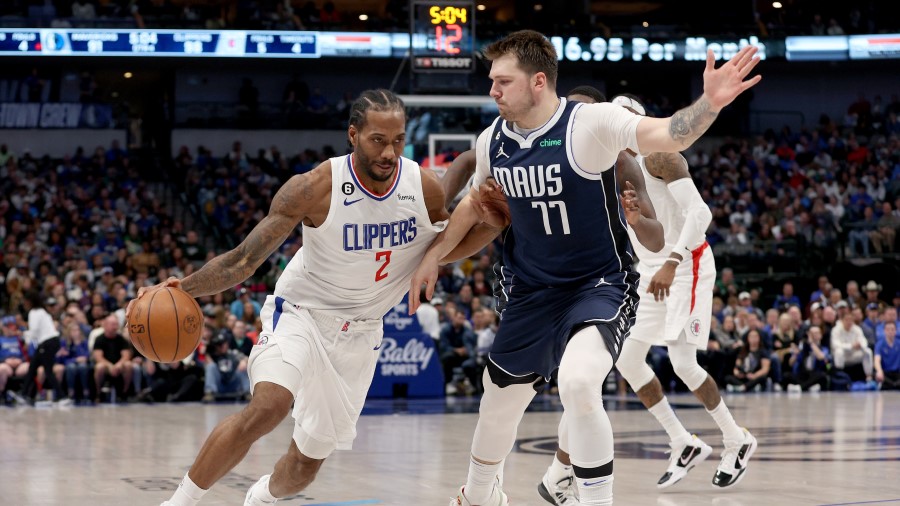The Legacy Of The Miller Family And The Utah Jazz
Oct 29, 2020, 2:51 PM

Gail Miller and the late Larry H. Miller (Photo: Utah Jazz)
(Photo: Utah Jazz)
SALT LAKE CITY, Utah – On Wednesday, Gail Miller, the longtime matriarch of the Utah Jazz announced she was selling a majority share of the franchise to Ryan Smith, a tech billionaire and longtime Jazz fan whose roots are firmly planted in Utah. Though the Miller family will continue to hold a minority share in the team, their involvement in the day to day operations will decrease dramatically. As the organization moves into its 41st season in the state of Utah, we can look back at the lasting legacy the Miller family has built with the Jazz.
The Miller’s first bought into the Jazz organization in 1985 when then-owner Sam Battistone was deep in debt, and contemplating moving the team to Miami. The Miller’s bought half of the team in ’85, before taking total control in 1986.
In a major shakeup, the Larry H. Miller Group of companies announced they are selling majority control of the @UtahJazz to @RyanQualtrics. #TakeNote https://t.co/NZ4rvxmAb3
— KSL Sports (@kslsports) October 28, 2020
Unlike Smith, the team’s billionaire new owner, the Miller’s purchase of a fledgling team was a significant risk, especially for a small business owning family still coming into their own financially. But with the emergence of John Stockton and Karl Malone and the move from Frank Layden to Jerry Sloan as head coach, the decision quickly proved to be a wise investment and made the Miller’s one of the most powerful families in the state of Utah.
Surviving in Utah
Beyond their off the court philanthropic efforts, which far outweighs any good a basketball team could ever accomplish, simply keeping the Jazz in a small media market while teams in Seattle, Charlotte, and Vancouver have left their cities is an enormous part of the Miller’s legacy.
Yes, the team benefited from being the only professional franchise in town for most of the last four decades, but beyond surviving, the Jazz have thrived in the state. While fans across the Wasatch Front have split their allegiances between the University of Utah and Brigham Young University, the Jazz have served as the great uniter in Utah sports.
Being a black player in Utah isn't as bad as it seems. https://t.co/lEQTg9yqcX
— The Undefeated (@TheUndefeated) April 21, 2017
Not only have the Jazz managed to stick around, but they’ve also become one of the premiere small-market franchises in all of sports. Though a championship continues to elude them, the Jazz are a perennial playoff contender, they’re financially solvent and have survived with fewer blackeyes than most professional franchises of any size.
Building Vivint Arena
The Miller family broke ground on Vivint Arena, formerly known as the Delta Center in 1990, and completed the build in 1991. Ever since, the building has become an economic hub for the city drawing thousands of fans to each game, and increasing foot traffic in downtown Salt Lake City.
Since its inception, several businesses, malls, restaurants, and living complexes have been built in the near vicinity of the arena. Additionally, it’s served as a cornerstone of the city’s transportation infrastructure with light rail and bus systems revolving around the building.
14 years ago today, @TheDeliverer_32 was forever enshrined in @utahjazz history.
March 23rd marks the anniversary of Karl Malone's statue unveiling and jersey retirement with the franchise. #TakeNotehttps://t.co/7nlbHaEnDA
— KSL Sports (@kslsports) March 23, 2020
In 1993, the arena played host to the NBA All-Star Weekend, establishing the city as a major player in the world of sports. Stockton and Malone won co-MVP of the All-Star game and highlighted Salt Lake City a worthy host of future events.
In part due to the arena’s triumphant success with All-Star Weekend, Salt Lake City was chosen as the host city for the 2002 Olympic games. The Delta Center was renamed the Salt Lake Ice Center which held figure skating and speed skating competitions during the games.
The Miller family invested $125 million into the arena for renovations in 2017, which once again helped the Jazz land the All-Star Game in the state. In 2019, the NBA announced the yearly event would return to Vivint Arena during the 2023 season.
A Winning Culture
Very few things in professional sports are more important to winning than good ownership. Star players come and go, coaches are hired and fired with great regularity, but consistent leadership from the top down reigns supreme over the long life of a sports franchise.
the Jazz roster moves can be debated, as can a penchant for conservative financial decisions, but the team’s on the court success under the Miller family is inarguable.
The Miller family saved the Jazz in the mid-1980's, buying the team and keeping it in Salt Lake. 50-win seasons, 9 division titles and two WC championships. Only the Spurs have a better winning percentage than the Jazz (1470-1014, .592) since the 1989-1990 season. https://t.co/kQCRhIk6VF
— Adrian Wojnarowski (@wojespn) October 28, 2020
Over the last 35 years, the Jazz have won games at a .588 rate, for an average of 48 wins per season. By comparison, only the San Antonio Spurs and Los Angeles has experienced more regular success. That Miller’s impressive run included 30 winning seasons, 27 playoffs appearances, and two trips to the NBA Finals.
Finding winning players has been key to the team’s success, but the expectation to win set by the Millers’s which is now reflected by the team’s loyal fanbase has helped the Jazz stay relevant as a familiar face in the NBA playoff picture.
A Steady Hand
Perhaps the most important legacy the Miller family bestowed on the Jazz franchise was their steady hand during their 35 years of ownership. Though professional sports have become a hotbed for turnover, the Jazz have remained consistently reliable for the better part of the last three decades.
Though tempers weren’t always calm, the Miller family routinely found their better angels during tumultuous times and it benefitted both the team and the state.
From dustups with Malone on and off the floor, to calls to replace coaches and general managers, the Miller’s patience in the innately agitated world of sports was unique. It allowed Stockton and Malone to spend 37 of their combined 38 career seasons with the Jazz, and it gave Sloan control of the team’s bench for 23 years. Those careers entrenched the sturdy foundation on which the future of the franchise was built and they wouldn’t exist without the Miller’s lasting composure.
Remembering the biggest moments of the last decade for the @UtahJazz: Perhaps the most turbulent week in franchise history saw 23-year head coach Jerry Sloan resign, Ty Corbin assume head coaching duties, and Deron Williams traded to the New Jersey Nets for Derrick Favors. pic.twitter.com/V0b0jWJFxT
— KSL Sports (@kslsports) December 31, 2019
When there was irreparable turmoil, as was the case when Sloan and All-Star guard Deron Williams relationship became untenable, the Miller family rapidly addressed the issue and fell back on the trusty endurance.
As the family relinquishes the reigns of the franchise it has held for so long, Jazz fans should hope that new ownership can channel parts of the Miller legacy that have made the organization so successful for the last 35 years.












